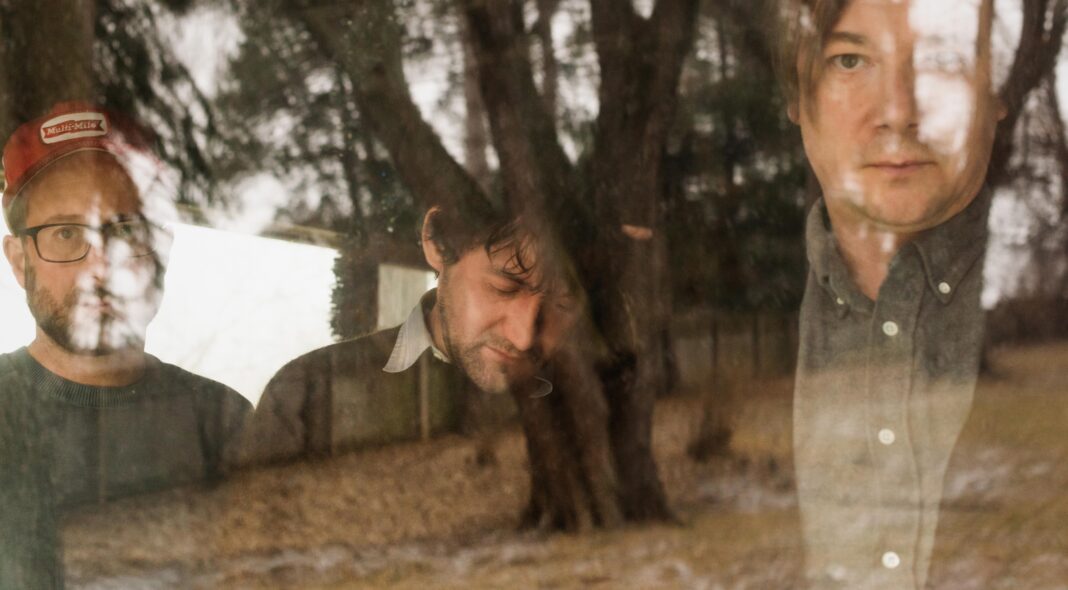Many consider Conor Oberst one of the greatest lyricists of our time. The perennially busy indie folk hero has written the soundtrack to many a depressed adolescence. Despite having been in more bands than you can count on one hand, he’s never quite shaken that image, but anyone who dismisses his sad songs as ‘music for depressed teens’ has clearly forgotten the wise depth and intensity with which teenagers think and feel. Some songs from Bright Eyes’ first record were recorded when Oberst himself was only 15. Besides, now Bright Eyes are back with their first album in nine years, Oberst’s lyrics – ruminating over trauma, death and divorce – radiating with their familiar comfort.
Oberst often writes as though from the darkest depths of depression but his words shimmer with life-saving honesty. For listeners who are in those depths themselves his music is like a hand reaching out to rescue you. Because he gets it.
From the humdrum and prosaic – like the weather, drinking coffee, getting home from work – to those deeper common experiences – heartbreak, loneliness, suicide, addiction – his storytelling holds excruciating candour, pain and loss which makes him a refuge for the lonely and the depressed. But amid all the trauma and suffering there’s a sharp caustic wit that pierces straight through the heart of human relationships.
In conversation with Oberst for The New York Times, fellow confessional songsmith Lorde described his lyrics as, “childlike, fierce and honest and intense. You’re kind of defying people to say they didn’t feel the same way as you. Everyone has those feelings that they don’t quite want to admit, but which you do, in songwriting.”
While we wait for more new music, we’ve put together a list of 10 of Oberst’s most heartbreaking Bright Eyes lyrics; devastating in their depictions of lost hope, torturous introspection and dead-end days.
1. ‘Calais to Dover’
“Pain like a big red rubber ball/ I wish it would stop/ I wish I could tell you it was gone/ but nothing is changing/sorry to state the obvious”
BRIGHT EYES, ‘CALAIS TO DOVER’
No one dissects the stagnant moments in life with as much raw emotion and grave melodrama as Oberst. Guilt hangs over ‘Calais to Dover’ like a neon sign, – “tell me I’ll pay for what I’ve done”, “I wish I could tell you it was gone” – only matched by a desperate longing for empathy. Filled with what-ifs, Oberst daydreams of how different life could be if only he were somewhere else in the world, an apt emotion for our current times.
2. ‘To Death’s Heart (In Three Parts)’
“There’s nothing left no more/ to tear apart/ agonies are infinite/a nd sympathies just aren’t/ they run out”
BRIGHT EYES – ‘TO DEATH’S HEART (IN THREE PARTS)’
In ‘Down In The Weeds, Where The World Once Was’ Oberst sings of different journeys and places, always moving but never quite escaping the feeling of being trapped. Starting softly, ‘To Death’s Heart (In Three Parts)’ introduces a jangly guitar solo half way through that makes it surprisingly upbeat despite lyrics laced with self-loathing like “I’ll ask my love/what will she say?/what’s it like to live with me here/every fucking day?”
3. ‘Lime Tree’
“I can’t sleep next to a stranger when I’m coming down/ it’s 8 a.m., my heart is beating too loud/ don’t be so amazing or I’ll miss you too much/ I felt something that I had never touched”
BRIGHT EYES – ‘LIME TREE’
‘Lime Tree,’ the closing track from 2007’s ‘Cassadaga’, is about the aftermath of an abortion. Oberst said this album is a collection of stories that have happened to him and his friends. This song cuts to the heart of grief in the realisation that he still loves his ex who had the abortion but their relationship is over. He tries to chase the feeling away with drugs and nostalgic ruminations but ends up taking off his shoes and walking into the woods to find and lose himself.
4. ‘Hit The Switch’
“And in the middle of drinks maybe the fifth or the sixth/I’m completely alone at a table of friends/I feel nothing for them/I feel nothing, nothing”
BRIGHT EYES – ‘HIT THE SWITCH’
On ‘Hit The Switch’ Oberst wrestles with his suicidal fantasies and fear of death, lamenting the hypocrisy of these conflicting thoughts. Resolutions to stop drinking and get out of the city are undercut by the suggestion that neither of those things will happen – “I do what I do and at least I exist.”
5. ‘Waste of Paint’
“So I hold my tongue, forget the song/ tie my shoes, start walking off/ and try to just keep moving on with my broken heart and my absent God”
BRIGHT EYES – ‘WASTE OF PAINT’
Possibly more devoid of hope than any Bright Eyes song, ‘Waste of Paint’ depicts a series of dead-end lives. The friend who’s “mostly made of pain”, the woman who was “free to waste away alone” and the brother who is “on a path to debt, to loss, to shame.” Oberst looks for meaning all over town – at the train depot, at the cathedral – but concludes that meaning can only be found in God and love and that he has neither.
READ MORE: 45 OF THE SADDEST SONGS EVER WRITTEN
6. ‘Lua’
“And I’m not sure what the trouble was that started all of this/the reasons all have run away but the feeling never did/it’s not something I would recommend but it is one way to live”
BRIGHT EYES – ‘LUA’
On ‘I’m Wide Awake It’s Morning,’ Bright Eyes’ most commercially successful record, Oberst looks inward documenting life as a depressed addict. ‘Lua’ depicts this lifestyle with painstaking honesty; walking to parties in the freezing cold, lonely comedowns, people using each other, blacking out. In this song, reality is just awful and everything seems so much simpler when you’re getting high and staring at the moon.
7. ‘Something Vague’
“And you sink in your chair, brush the snow from your hair and drink the cold away/you’re not really sure what you’re doing this for/but you need something to fill up the days”
BRIGHT EYES – ‘SOMETHING VAGUE’
‘Something Vague’, which interrogates a vague uneasy feeling, is Bright Eyes stripped back to what they do best. Folky guitars are overlaid with a melodic flute chorus foregrounded by Oberst’s vocals, shaky and desperate. Its earnest meditations on passing time, secret dreams and lost innocence are rooted in the realities of getting through the day caught up in childhood memories, no longer recognising the person you have become.
8. ‘If Winter Ends’
“I scream for the sunlight or a car to take me anywhere/just get me past this dead and eternal snow/because I swear that I’m dying, slowly, but it’s happening/and if the perfect spring is waiting somewhere just take me there”
BRIGHT EYES – ‘IF WINTER ENDS’
‘If Winter Ends’ addresses depression head-on. Lines like, “I give myself three days to feel better or else I swear I’ll drive right off a fucking cliff” divulge a distressing ultimatum, but one that many of have given themselves with varying degrees of intension. It’s refreshing to hear such brutal honesty in songwriting.
9. ‘Contrast and Compare’
“Contrast and compare/between the busy ones/and the ones that don’t care/until there is no one/that you really know/so I drift through these days/of appointments and promises made/they will all end up broken/and quickly replaced”
BRIGHT EYES – ‘CONTRAST AND COMPARE’
Fittingly recorded on New Year’s Eve, ‘Contrast and Compare,’ explores loneliness, no longer enjoying parties and telling everyone you’re feeling fine when you’re not. The last line reveals that Oberst saves his emotional outpourings for song writing: “she grabs my arm/ says, “What’s up, where you been/ is something wrong?”/ I try to just smile/and say, “Everything’s fine”
10. ‘Saturday as Usual’
“Me I’m in the bathroom/crying out my eyelids because it’s hard to be a man/when you’re scared just like a little kid/the world’s become/a little too mean/and I can’t see the point of patient love/when everyone just wants to get fucked”
BRIGHT EYES – ‘SATURDAY AS USUAL’
Growing up is tough. Oberst pinpoints his 13th birthday as the moment he had the hopeless realisation that all the adults he looked up to hated their lives. You don’t have to look for long to notice how pointless life can be in Oberst’s cast of forlorn characters in ‘Saturday as Usual’ who are drifting through the same routines over and over, existing but not really living. Oberst probably wrote this in his early teens, so it’s a testament to how devastatingly astute he has always been.







HAHAHAHAHAHAHAHAHAHHAA
bro this list fucking sucks lmaoooooo this man has written some of the darkest most fucked up songs in history